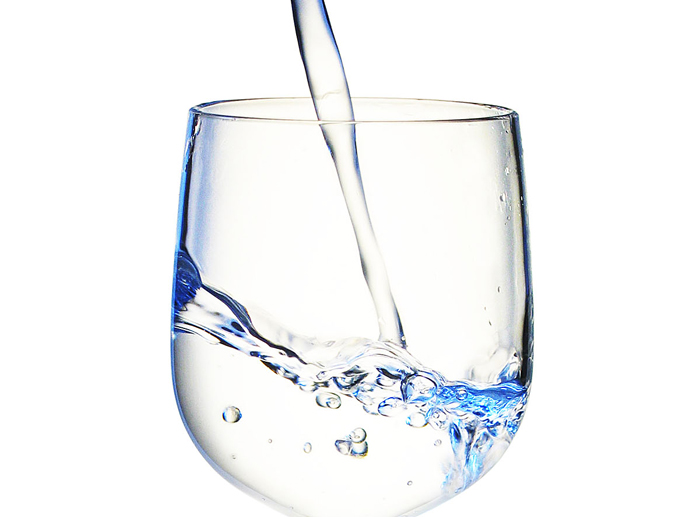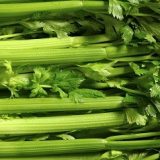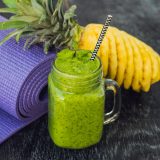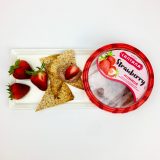New Year, New You: Part 5 | Wonders of Water

Geri Wohl, CNC
Better Eating Coach
Written By: Geri Wohl, CNC
www.bettereatingcoach.com
Eau. Agua. Ma’yim. Nero. Water. It is essential to our existence. When you visualize your body, water is probably not foremost in your thoughts. However, we are about 70% water. Water comprises over 80% of our blood, over 75% of our brains and about 95% of our liver. Water is probably the single most important compound in our bodies. We are constantly using water for many metabolic reactions. In fact, a person functioning at a normal activity level must constantly replenish about 2 1/2 quarts or 12 cups of water per day. When bodily water levels decrease, the result can be diminished mental capacity and energy levels. Even a 5% drop in water levels may result in a 25-30% loss of energy.
While water is fundamental to transporting nutrients in and out of cells, keeping our skin looking more youthful, enhancing our cognitive function and maintaining normal kidney and bowel regulation, let’s focus on water’s role in weight loss. Drinking plenty of water helps to control calories. Think of water as your “weight loss friend”. Drinking a large glass of this no-calorie liquid before a meal is a simple way to reduce the calories consumed during your meal. The reason is simple; water partially fills the stomach, thereby signaling your brain sooner that you are satiated. For more about water and the brain, see my article, “Food For Thought.”
Drinking enough water also prevents fluid retention. If you don’t imbibe enough water, then your body will retain water so that it can be utilized where most needed. The result while counterintuitive may manifest itself as bloating and puffiness of the skin. If you feel thirsty, you are already dehydrated. You can become just as dehydrated in the winter as in the summer. One manifestation from dehydration is the blood becoming thicker and your heart having to work harder, resulting in increased systemic stress. Water also assists the body in burning stored fats. If you are dehydrated, the liver will have to aid the kidneys instead of metabolizing fats into energy sources. Water also prevents constipation, allowing toxins to be more readily excreted.
So what’s the difference between water and other fluids? Fruit juices and sodas are laden with sugar that doesn’t promote health or weight loss. Remember that juices and sodas contribute calories even if you are drinking them and not chewing them. See my article, “Eating Well to Lose Weight: Skip the Sugar,” on reducing sugar for more details. Even the no-calorie artificially sweetened drinks should be avoided. It is hypothesized that these sweeteners signal the body that sugar is present stimulating insulin production resulting in storage of fat. Caffeinated beverages such as coffee and certain soft drinks stimulate the adrenal glands as well as act as diuretics causing water loss.
Alcohol is another drink that contains many added calories. Consider that a glass of red wine is 125 calories, a 12oz. beer is 153 calories and 1.5 oz. of liquor like gin, rum or vodka is 97 calories. If you add in the mixers, you are raising your caloric intake further. Before you partake in your nightly drink, think if you really want those calories as part of your daily total. The liver breaks down alcohol very quickly. If you drink significantly or if you suffer from liver disease, the liver may be unable to perform its primary fat breakdown function effectively, resulting in added fat storage—exactly the opposite of your goal.
Here are some easy ways to obtain more water during the day:
- Try carbonated water as an occasional alternative to tap water.
- If you don’t like the taste of plain water, try squeezing some lemon or lime juice into your water. The pectin in lemons has the added benefit of reducing food cravings. You can also try mint leaves or even cucumber slices for different flavors. Iced vs. tepid has no consequential difference. Drink whatever temperature water you prefer in large quantities.
- Drink water before you eat. Drinking water before meals results in an average caloric reduction of about 75 calories per meal. During the day, that equates to a 225 calorie reduction.
- Carry a water bottle with you and refill it during the course of the day. If you see the water, you will be more likely to reach for it. Another trick is to set a timer every hour to remind you to drink a glass of water.
- Reduce your consumption of calorie-laden liquids and your coffee intake (especially if having 3 or more cups per day).
- Start with a goal of 64 oz. water per day if you aren’t excessively exercising. For athletes, your water consumption will need to increase depending on the intensity of your workout. Please note that water consumption levels are dependent on weight, activity level and size.
- Try consuming water-rich foods to increase your water intake. These water-rich foods, comprised of fruits and vegetables are also low in calories. They include cucumbers, watermelons, iceberg lettuce and tomatoes. For some delicious water-rich recipes, see my Summer 2013 recipes page.
- Eat water or broth-based soups for added liquid intake.
- Drinking water is easier on the pocketbook than other types of drinks.
So drink up and obtain the multitude of benefits from one of our most precious resources!
© Geri Wohl, CNC










